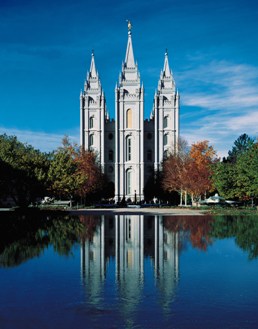As I mention above, I think much of the writing about Romney and Mormonism has been shallow. For what it’s worth, I count myself among those who think this issue need not necessarily be a concern, but actually is a concern for Mitt Romney. I don’t think Mormonism has been that much of an issue on the national stage for Harry Reid, for example. But Romney has a sanctimoniousness about him, and especially about this faith, that is troubling. He seems to think that just boasting that he’s a man of faith is some mark of distinction. Even President Bush, who has worn his religion openly, said to us in the Oval Office last week that he didn’t think being a man of faith was a qualification for being president.

Worse, Romney is not honest about his religion and what it stands for. Yuk-yukking it on 60 Minutes about premarital sex and all. As far as I’ve heard, he’s yet to address the more serious issues about faith: What does his faith advise him on matters concerning Israel, for example? Will he bring the Bible or Book of Mormon into the Oval Office? Should we teach the Bible in schools? What about religion? What about Mormonism?
Democratic pollster Mark Mellman has looked beyond the cliches at what the data suggests, and it suggests Romney better give that speech about his religion that’s he’s apparently contemplating.
At least seven polls over the last couple of years have asked in somewhat different ways about public willingness to support a Mormon candidate for president. The responses are remarkable for both their magnitude and their range.
Gallup brings up the low end, with 24 percent telling live interviewers they would not vote for “a generally qualified person for president who happened to be a Mormon.”
On the high side, Rasmussen found 43 percent willing to push an anonymous button on their telephone signaling they would never vote for a Mormon presidential candidate.
To be sure, there are worse sins than Mormonism in the public mind. Forty-three percent would refuse to vote for a “homosexual” and 53 percent would reject an atheist, but voters are substantially more willing to admit anti-Mormon feeling than to acknowledge unwillingness to vote for a black (5 percent) or a Hispanic (12 percent), let alone a Catholic (4 percent) or a Jew (7 percent).
Adapting a technique we pioneered for women candidates 20 years ago, Harris Interactive set up an experiment providing each half of its sample with identical descriptions of two candidates and asking for which they would vote. However, half the sample was told that one of the candidates was a Baptist, while the other half was told that same candidate was a Mormon. The margin for the Mormon candidate was 20 points less than the margin for his Baptist doppelgänger.
